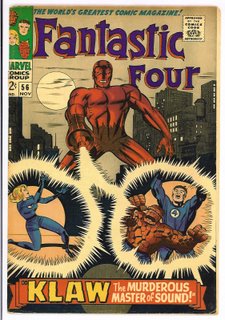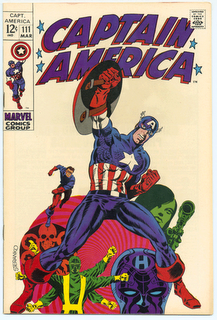I believe Israel has every right to defend itself against kidnappings of its citizens, but to bomb a university? That crosses the line into dangerous territory and casts military motives, to my thinking at least, under a cloud:
GAZA, Thursday, June 29 Israel stepped up its confrontation on Wednesday with Palestinian militants over the capture of an Israeli soldier, battering northern Gazan towns with artillery and sending warplanes over the house of the Syrian president, who is influential with the Palestinian leader believed to have ordered the kidnapping. The crisis seemed to be tipping toward escalation as Israeli tanks hunkered down inside southern Gaza at the airport on Wednesday after warplanes had knocked out half of Gaza's electricity and pounded sonic booms over houses.
The Israeli defense minister, Amir Peretz, approved an extension of the incursion into northern Gaza, where Palestinian militants have been firing crude Qassam rockets into Israel. As of early Thursday, though, Israel denied reports that it was moving tanks into northern Gaza. About 9 p.m. Wednesday, after saying they would drop leaflets urging citizens of Beit Hanoun and Beit Lahiya to leave their homes, Israeli artillery batteries began to shell.
On Thursday, an Israeli warplane fired a missile in Gaza City that an Israel spokeswoman said hit a soccer field near the pro-Hamas Islamic University. Reuters reported that the missile hit inside the university.
Political leaders of Hamas on Wednesday joined the militants to demand the release of Palestinian women and minors from Israeli jails in exchange for the soldier a condition that the Israeli prime minister, Ehud Olmert, rejected. The choice, Israeli officials said, was the soldier's unconditional release or an escalation that could widen the conflict regionally: Haim Ramon, Israel's justice minister, raised the possibility of a strike in Syria to kill Khaled Meshal, the exiled political leader of Hamas; the men who hold the Israeli soldier, Cpl. Gilad Shalit, 19, are believed to be following his orders.
"We won't hesitate to carry out extreme action to bring Gilad back to his family," Mr. Olmert said of the soldier, who was captured Sunday in an attack near Gaza led by Hamas. In what the Israelis said was a message to the Syrian president, Bashar al-Assad, four Israeli warplanes on Wednesday flew over his residence in Latakia, in northwest Syria, where he was believed to be staying. Syrian state television said Syrian air-defense systems had fired on the planes and forced them to flee.
Mahmoud Abbas, the Palestinian president, on Wednesday condemned Israel's attacks on infrastructure in Gaza, which disabled its only power plant and knocked down three bridges. In a statement, Mr. Abbas said he considered "the aggression that targeted the civilian infrastructures as collective punishment and crimes against humanity."For the Israelis, the operation is aimed at deterring Hamas, which now leads the Palestinian government, from carrying out similar attacks in the future.
Israeli newspapers carried articles on Wednesday speaking of the attacks on the infrastructure as a way to extract a concrete longer-term cost for the actions of the Palestinian leaders.For many Palestinians in Gaza, the refusal to back down seemed a collective effort to highlight their own sense of grievance. The economy has broken down under an embargo of Western aid since Hamas took power in January.
The Palestinians contend they remain under siege, even after the Israeli withdrawal from Gaza last year, with their borders often closed and encircled by Israeli warplanes and ships.And there remains widespread approval for the capture of Corporal Shalit and Hamas's demand for an exchange, given that there are nearly 9,000 Palestinians in Israeli jails, among them 95 women and 313 people under age 18.
"There is support for this because I am not safe when I walk on the street," said Mustafa Raghib, the director of Gaza's largest flour mill, forced to shut for several hours after the electricity was cut. "Give me a good life and I will not support actions like this."
The White House on Wednesday called for the release of the soldier. Mr. Bush's spokesman, Tony Snow, said that Hamas had been "complicit in perpetrating violence" and that Israel had the right to defend itself.Mr. Snow said the Bush administration was urging Israel to ensure "that innocent civilians are not harmed" and to "avoid the unnecessary destruction of property and infrastructure."
But he chose his words with precision, steering clear of questions about whether the Israeli response had been appropriate.
Israeli leaders said Wednesday that they had ordered the military forward after seeing little progress on diplomatic efforts including by Egypt and France to win Corporal Shalit's release. Amid sonic booms that shattered windows, Israeli military planes hit the three bridges, as Apache helicopters attacked all six of the transformers at the power plant an attack that Israeli officials said was necessary to make it harder to move the corporal around.
"Nobody understands the logic," Rafik Maliha, the plant's manager, said. "They want to keep people in the dark so kidnappers don't move? What's the relationship?"If there is no electricity, there is no water," he added. "It is more than collective punishment."The plant provided 42 percent of the power to Gaza's 1.3 million residents, and now Gaza is completely dependent on Israel for power.
Mr. Maliha said it would take as long as a year to replace the transformers.




